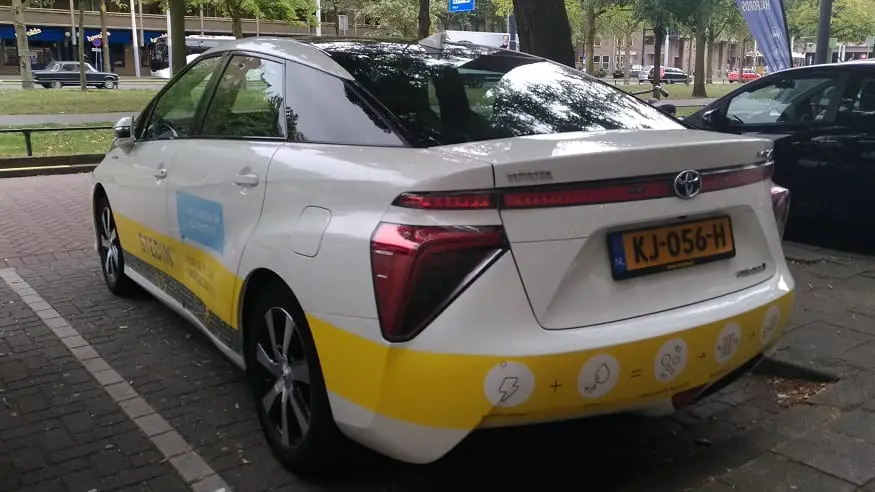
Collaborative hydrogen fuel project in Swindon is in full swing
May 9, 2019The next-generation technology has become a part of daily life in the southwest England town.
A consortium of 30 companies in Swindon are hard at work on a hydrogen fuel project that aims to make the technology less of a concept and more of an everyday reality. For the past three years, the Hydrogen Hub has been putting the alternative power to the test with end-users.
Hydrogen cars are one of the project’s major focuses.
The Hydrogen Hub, which was launched three years back by energy consulting company Ecuity, has been testing hydrogen in cars, forklifts, buses and even in heat and power applications.
Cars are a big part of the hydrogen fuel project and make up one of the four work streams. This stream is overseen by Arval, a global leader in full service vehicle leasing. Arval’s Senior Business Manager, Paul Marchment, believes that in a few years, hydrogen will really take off.
“We’re probably at about ground minus three [years] in terms of this technology really taking off,” Marchment told Fleet World’s Alex Grant.
“In three years’ time, when we have more stations, there’s more product and people are more aware of the usage, that’s when this will really fly.”
Marchment has been a part of the Hub project for about two years, just prior to Arval deploying its own Toyota Mirai fuel cell car. The project has since helped fund other fleets adopting cars, helping to build an understanding of how it works for businesses.
The hydrogen fuel project has already seen seven of 15 cars deployed.
Seven of the planned 15 hydrogen cars have already been deployed and so far the end-users have been quite diverse. Among these include: Arval’s own demonstrator, a multi-use vehicle for the nearby Science Museum storage facility, pool cars for Nationwide building society and the National Trust, and one for Johnson Matthey, a company that develops fuel cell components for OEMs.
Early hydrogen vehicles have been finance leased, backed by OLEV (Office for Low Emission Vehicles) funding and are used as regular fleet cars, according to Marchment. Additionally, those who have participated in obtaining the vehicles have encouraged as many employees to get behind the wheel as possible. Moreover, manufacturers have been supportive, with Toyota ensuring local dealers are fully trained to service Mirais if these fuel cell cars are ever deployed locally.
“A lot of new technology gets to market through fleets, because leasing a vehicle is risk-free. To get this technology into the second and third-hand market, we rely on [fleet]. If we can understand the technology, the maintenance, the running costs, then that helps us to have grown-up conversations both internally and with the end-user,” Marchment explains.
Information is vital when it comes to working with technologies that are unfamiliar. Therefore, behind the hydrogen fuel project, the participants are also part of a working group that shares the best practices and reports back to the UKs Office for Low Emission Vehicles, Gran reports.
While progress is being made, Marchment believes that the biggest hurdle to making hydrogen fuel vehicles  widespread in the UK is overcoming the lack of infrastructure as there is next to no refuelling network. That said, Johnson Matthey thinks that to support nationwide coverage, the UK needs only 80 stations to be built.
widespread in the UK is overcoming the lack of infrastructure as there is next to no refuelling network. That said, Johnson Matthey thinks that to support nationwide coverage, the UK needs only 80 stations to be built.



 HFN News is your leading source for fresh hydrogen and renewable energy updates. Amid the fast-paced growth of hydrogen companies, we provide top-notch news and insights about this exciting sector. Our coverage spans from hydrogen cars to global sustainable initiatives, and we highlight the latest in green jobs and developing hydrogen hubs. We invite you to share your local hydrogen news and explore today’s renewable energy job listings on our site. Thanks for choosing HFN News as your trusted guide to the hydrogen and renewable energy world!
HFN News is your leading source for fresh hydrogen and renewable energy updates. Amid the fast-paced growth of hydrogen companies, we provide top-notch news and insights about this exciting sector. Our coverage spans from hydrogen cars to global sustainable initiatives, and we highlight the latest in green jobs and developing hydrogen hubs. We invite you to share your local hydrogen news and explore today’s renewable energy job listings on our site. Thanks for choosing HFN News as your trusted guide to the hydrogen and renewable energy world!

Good, but I would ask how is the hydrogen generated?